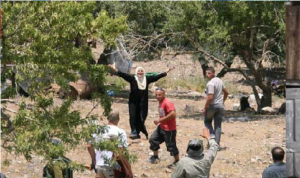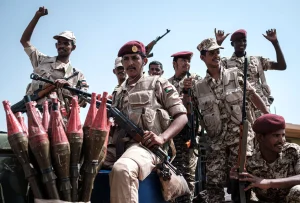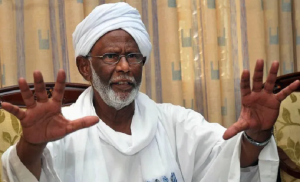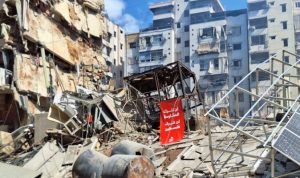 New York, 11 Sha’ban 1434/19 June 2013 (MINA) – The United Nations High Commission for Refugees (UNHCR) released the number of people who have been forcibly displaced by war and other crises worldwide has risen to its highest level for almost two decades, hitting 45.2 million.
New York, 11 Sha’ban 1434/19 June 2013 (MINA) – The United Nations High Commission for Refugees (UNHCR) released the number of people who have been forcibly displaced by war and other crises worldwide has risen to its highest level for almost two decades, hitting 45.2 million.
Annual figures released by UNHCR on Wednesday showed that 1.1 million fled across international borders in 2012, while a further 6.5 million were displaced within their own homelands.
“This means one in each 4.1 seconds. So each time you blink, another person is forced to flee,” Antonio Guterres, the UN high commissioner for refugees, told reporters.
The total figure of 45.2 million included 28.8 million internally displaced people, 15.4 million border-crossing refugees, and 937,000 asylum seekers, Aljazeera quoted by Mi’raj News Agency (MINA) as reporting.
Also Read: Mamdani Ready for Dialogue with Trump, as long as it Benefits New Yorkers
“War is the main reason for this very high number of refugees and people internally displaced. Fifty-five percent of them correspond to the well-known situations of Afghanistan, Somalia, Iraq, Sudan, and Syria,” Guterres said.
Overall, the Afghan conflict continued to produce the most refugees, a position that it has held for 32 years. Worldwide, one refugee in four is Afghan.
Guterres also cited conflicts in Mali, the Democratic Republic of Congo and Central African Republic as producing large numbers of displaced people and refugees.
Due to the raft of crises, he said, the total number of refugees and internally displaced had risen to a level unseen since 1994, a year marked by the Rwandan genocide and bloodshed in former Yugoslavia.
Also Read: YouTube Removes Hundreds of Videos by Palestinian Human Rights Groups
‘Multiplication of conflicts’
While last year saw 2.1 million internally-displaced people and 526,000 refugees return home, as well as the resettlement of 886,000 in rich nations, fresh crises drove the global total higher.
“New refugees, new internally displaced, unfortunately represent much more than those able to find an answer to their plight,” said Guterres, lamenting the international community’s limited capacity to prevent conflicts and to find timely solutions to existing ones.
“We witness a multiplication of new conflicts, and it seems that old conflicts never die,” he said.
Also Read: Zohran Mamdani Elected First Muslim Mayor of New York City in Historic Victory
Guterres pointed out that the number of people who had fled the spiralling violence in Syria had soared from 650,000 at the end of 2012 to around 1.6 million now, surpassing last year’s total from all conflicts.
The UNHCR has warned that Syrian refugee numbers could hit 3.5 million by the end of this year, while there are also fears that the number currently displaced within the country, 4.25 million, will also climb.
Syrian refugees have flooded into neighbouring Lebanon, Jordan, Turkey and Iraq, stretching those nations’ ability to cope.
Guterres urged the international community to help shoulder the load, although he said UNHCR-brokered resettlement programmes for Syrians in rich countries were not yet on the cards.
Also Read: Mamdani Leads Race as New Yorkers Choose Next Mayor
Pakistan top host nation
With the economic crisis having sharpened the asylum debate in developed nations, Guterres said it was important to keep some perspective.
“Who is supporting refugees in the world? Essentially, developing countries,” he said, stressing that 87 percent of the world’s refugees were protected by developing countries, up from 70 percent a decade ago.
“So when we see discussion sometimes that exist about refugees in many developed countries, I think it’s good to remind public opinion in those countries that refugees are not people fleeing from poor countries into rich countries in search of a better life,” he added.
Also Read: UN Member States Renew Calls for Reform as Organization Marks 80th Anniversary
Pakistan remained the world’s top host nation in 2012, with 1.6 million refugees mostly from Afghanistan, followed by Iran, with 868,200, and Germany, with 589,700. (T/P09/E1).
Mi’raj News Agency (MINA).
Also Read: Trump Warns Israel Could Lose All US Support Over West Bank Annexation





























 Mina Indonesia
Mina Indonesia Mina Arabic
Mina Arabic